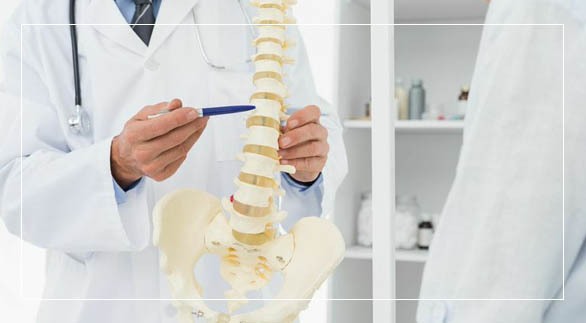Nerve Pain
The human nervous system has a tremendous capacity to constantly relay vital messages throughout the body. If this complex system is damaged, nerve signals can go awry, causing intense pain. The spinal cord is the main transportation hub of the body's central nervous system, carrying signals from the brain to nerves throughout the body. Nerves coming from and leading to all parts of the body enter and exit the spinal cord along its entire length.
Damage to any part of the central nervous system or peripheral nerves can cause neuropathic pain.
Nerve pain in the spine can be caused by several different factors, ranging from disease to injury. Often, the root of nerve pain is that a nerve is compressed by a misaligned piece of the spine, such as a disc or vertebra. The nerve compression can cause pain that travels the length of the nerve pathway, sometimes resulting in pain that extends from the spine to the extremities.
Causes of nerve pain are not always degenerative in nature. Other conditions that can contribute to nerve pain symptoms include:
- Physical trauma, including sudden injuries, fractures, prolonged overexertion, stroke or highly invasive surgeries can all cause nerve pain.
- Tumors, in addition to the effects of treatments like radiation and chemotherapy, can trigger nerve pain.
- Disease or infection from conditions like lupus, shingles, diabetes, rheumatoid arthritis and spinal meningitis, among others, can cause inflammation that puts pressure on spinal nerves.
- Congenital defects like spina bifida, scoliosis, lordosis and kyphosis are anatomical abnormalities that can cause spinal nerve pain.

Early treatment is important to treat the symptoms, however. Receiving care as soon as possible may help prevent or lessen problems that often accompany neuropathy, such as depression, sleeplessness, and diminished functioning. Treatment varies, depending on the severity and cause of the nerve compression.If your nerve pain is caused by a degenerative condition like a herniated disc, bulging disc, bone spurs, spondylolisthesis, spinal stenosis or spinal osteoarthritis, your doctor will most likely recommend conservative treatment. Nonsurgical treatment is often an effective way to realign the spine and remove pressure from the nerve root without having to undergo surgery.
Dr. Amit Bindal has specific skills and plays an important role in patient care. If a spine problem is complex or does not improve, you may go to Dr. Bindal for up to the mark consultation, diagnosis, and treatment, as he always focuses on coordination with patient, convenience for the patient, and quality of care standards.